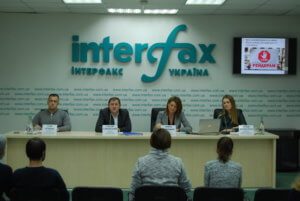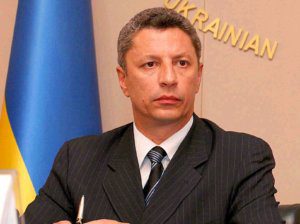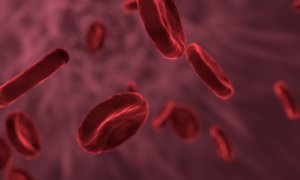
The investment of the European Bank for Reconstruction and Development (EBRD) in the development of business projects in Ukraine will reach EUR 550 million by the end of 2018, EBRD Deputy Head for Ukraine Marina Petrov has said.
“Taking into account this transaction [a loan to the carrier Negabarit-Service], we will have about EUR 505 million in the deals signed in 2018, and we hope that we should reach EUR 550 million by the end of the year,” she said at a press conference in Kyiv.
Petrov also noted that the EBRD plans to increase investments by 20% if the rate of economic growth is maintained.
“The economic growth that started in Ukraine creates opportunities for new business investments. We hope that in 2019 we will do more business by at least 20%, and if the macroeconomic situation remains stable, we will try to do more,” she said.
According to her, the EBRD continues to consider Ukraine as one of the main countries among its customers.
“We are very positive about the prospects for next year’s projects,” she said.

Ukrainian insurance companies in January-September 2018 collected net premiums in the amount of UAH 25.388 billion, which is 22.1% more than in the same period of 2017, according to the website of the National Commission for the State Regulation of the Financial Services Market. According to the regulator, gross insurance premiums collected by insurers for this period amounted to UAH 34.875 billion (11.1% more).
The share of net insurance premiums in gross insurance premiums for the nine months of 2018 increased by 6.6 p.p. compared to the same indicator of 2017 and amounted to 72.8%.
In January-September of the current year, insurers paid out UAH 8.467 billion in net insurance claim fees, which is 18.3% more than in the same period a year earlier. The level of net payments decreased from 34.4% from 33.3%.
According to the regulator, gross insurance payments increased by 18.7%, to UAH 8.755 billion, the level of gross payments rose to 25.1% from 23.5%.
According to the commission, outgoing reinsurance operations for the nine months of 2018 decreased by 11.6%, to UAH 11.718 billion, in particular due to the decrease in domestic reinsurance by 10.5%, to UAH 9.487 billion, by non-resident reinsurers by 16.2%, to UAH 2.232 billion.

The key reasons of hostile takeover of businesses in Ukraine are corruption and problems with the system of public registration of property, Anticorruption Entrepreneurial Front President Igor Egorov has said.
“The existence of hostile takeovers comes from a corrupt government, complete impunity for committing crimes of this kind and low-skilled law enforcement officers. According to official data of the Prosecutor General’s Office for 2017, 315 criminal proceedings were registered under the article on obstruction of lawful economic activity, 99 crimes under the article on unlawful seizure of property, of which two and four, respectively, reached the court,” he said at a press conference at Interfax-Ukraine on Wednesday.
He also said that foreign companies for these reasons do not want to invest in a business in Ukraine, and each case of hostile takeover is a blow to the country.
An example of this problem was the hostile takeover of a business center located at 21G, Dehtiarivska Street in Kyiv on December 11, among whose tenants are foreign companies and the 112 Ukraine TV channel.
Representatives of the co-owners of the business center, Office Line and Patron Invest, said that the police could not take control of the situation, since the persons who had seized the building announced that the Avangard Invest LLC had acquired ownership rights to the business center. At the same time, the owners claim that the building was re-registered using illegal schemes and forged documents.
According to lawyer of Patron Invest Iryna Belytska, one of the reasons that made this new registration possible is the weakness of the public registration system and a fairly wide access to public registers.
“10 years ago it was impossible to accomplish this. Now it can be done in three days, having access to the register. Unfortunately, over the years of the register’s existence, the pain points have not been eliminated,” she said.
Belytska said that Office Line and Patron Invest will defend their rights in courts, as well as initiate investigations by law enforcement agencies. However, the negative consequences of the incident cannot be avoided.
“We have applied to law enforcement agencies, human rights organizations and we will use all available mechanisms,” she said.
According to the lawyer, the investment value of the office building is $10.5 million.

Batkivschyna Party leader Yuliya Tymoshenko and Opposition Platform – For Life head Yuriy Boyko are the favorites among possible presidential candidates in Zaporizhia region, supported by 22.0% and 18.3% of the region’s residents who participated in a Sociological Group Rating survey. The poll was carried out from November 16 to December 2, 2018. Some 1,600 residents of the region were interviewed. The sample was formed taking into account the age and gender structure of the region, as well as the type of settlement. The margin of error of the survey does not exceed 2.4%.
Showman and Servant of the People Party leader Volodymyr Zelensky was supported by 14.1% respondents, followed by incumbent President Petro Poroshenko – 8.4%, Radical Party leader Oleh Lyashko – 7.5% and Ours Party leader Yevhen Murayev. Civil Position Party leader Anatoliy Hrytsenko was supported by 5.1% of persons who participated in the survey.
BOYKO, CANDIDATES, LEAD, POROSHENKO, PRESIDENTIAL, TYMOSHENKO, ZAPORIZHIA REGION

The Cabinet of Ministers of Ukraine has permitted the manufacturer of blood-derived products Biopharma Plasma LLC (Kyiv region) to sell donor blood preparations outside of the country for the indefinite period of time. The government approved the resolution at a meeting on Tuesday. The implementation of the resolution will contribute to an increase in the volume of production of medicines and the expansion of the export potential of Ukraine.
As reported, at the end of 2017, the Cabinet of Ministers issued Biopharma Plasma a license to export 32 names of medicines and medical products outside Ukraine in 2018.
Biopharma is among the ten largest Ukrainian drug manufactures. Biopharma produces more than 20 immunobiological preparations of blood, as well as drugs obtained by recombinant DNA technology and probiotics.
According to the National Commission for Securities and the Stock Market, shares in Biopharma Plasma belong to Niobera Investments Limited (Cyprus). The holder of a majority stake and the beneficiary (the holder) of the majority stake of the shareholder Niobera Investments Limited is Kostiantyn Yefymenko. Another beneficiary of Niobera Investments Limited is Vasyl Khmelnytsky.
BIOPHARMA, DONOR BLOOD, EXPORT, INDEFINITE PERIOD, PREPARATIONS